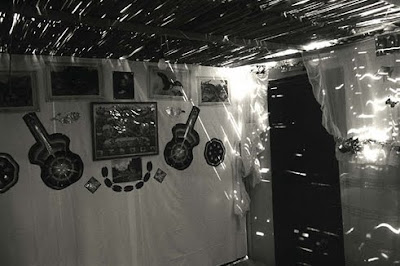Did I really mean what I said?

How is Sukkos a logical continuation of Rosh Hashana and Yom Kippur? Sukkos is a continuation in that it is the first opportunity to have my actions validate my words.
On Rosh Hashana, I pledged my allegiance to Hashem; proclaiming that He is my one and only King. On Yom Kippur, I spent the entire day in shul apologizing for all the times I did what I wanted to do rather than what He commanded me to do. I begged, I pleaded, I didn't eat or drink anything, hoping that I could convince Him that my words were indeed honest reflections of my true self.
And then just five days later, Hashem puts my true loyalty to the test on Sukkos with a variety of mitzvos that are both difficult to observe and to comprehend. He tests me to determine whether I will we put aside my personal sense of comfort and convenience to fulfill His will by eating, drinking, and even sleeping in the sukka. He tests my modern mind by asking me to perform a mitzva that is seemingly irrational; shaking a fruit, palm branch, and some twigs that are bundled together.
If I am honest with myself, I will acknowledge that my observance of the mitzvos of Sukkos provides a good barometer of my relationship to Hashem. How I approach these mitzvos reveals whether I am obediently following His commandments, or just serving Him out of habit and routine during the rest of the days of the year.
On Rosh Hashana, I pledged my allegiance to Hashem; proclaiming that He is my one and only King. On Yom Kippur, I spent the entire day in shul apologizing for all the times I did what I wanted to do rather than what He commanded me to do. I begged, I pleaded, I didn't eat or drink anything, hoping that I could convince Him that my words were indeed honest reflections of my true self.
And then just five days later, Hashem puts my true loyalty to the test on Sukkos with a variety of mitzvos that are both difficult to observe and to comprehend. He tests me to determine whether I will we put aside my personal sense of comfort and convenience to fulfill His will by eating, drinking, and even sleeping in the sukka. He tests my modern mind by asking me to perform a mitzva that is seemingly irrational; shaking a fruit, palm branch, and some twigs that are bundled together.
If I am honest with myself, I will acknowledge that my observance of the mitzvos of Sukkos provides a good barometer of my relationship to Hashem. How I approach these mitzvos reveals whether I am obediently following His commandments, or just serving Him out of habit and routine during the rest of the days of the year.









10 Comments:
Nice post. Maybe serving Hashem with the intent/understanding of "simcha shel mitzvah" is why it's Zman Simchasanu...
You have a lovely Sukkah!
Aaron: I agree, however, this is not my sukka. I just liked the picture.
I had a feeling you were going to say that! HAHA! Moadim LSimcha!
I think this is what it means, and I have no source for this whatsoever, so it is probably Kabbalistic, but like I said here is what I think. I think, Rosh Hashana, Yom Kippur, and Succos, are connected because they represent the three primary kinds of relationships we have with Hashem. On Rosh Hashana we crown Hashem King, on Yom Kippur, we apologize to our father for all the wrong we have done. On Succos, we rejoice with our spouse, in the yichud room (the Succah). I think that is the connection or one of the connections, but again, I don't have any source for this.
I hope we're all thoroughly enjoying and not just doing the mitzvot of Sukkos. They make us look at "normal" life from a better perspective and even with great amusement.
Succot could only come after Yom Kippur when we celebrate without food. During Succot there's food, but we must leave our homes.
i love the way you thoughtfully weave and explain the three holidays!
Minnesota Mamaleh: Thanks! By the way, I lived there between ages 7 and 18.
Lovely blog you have heree
Post a Comment
<< Home